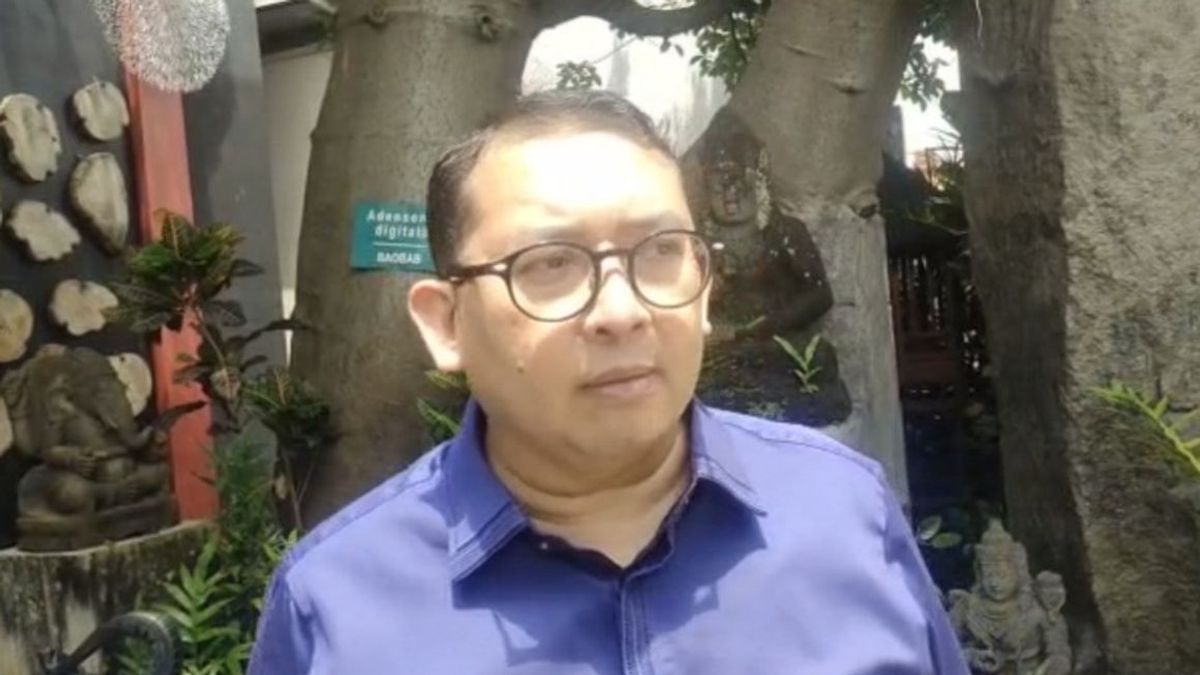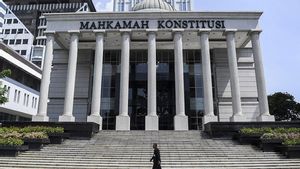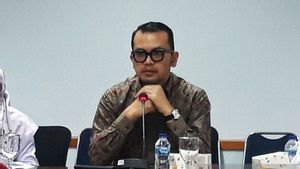JAKARTA - The politicians have expressed their aspirations to welcome the decision of the Constitutional Court which rejected the lawsuit over the implementation of elections with an open proportional system. Dr. H. Fadli Zon, SS., MSc., including those who welcomed this decision.
"Today, the Constitutional Court has read out the verdict on Case No. 114/PUU-XX/2022 concerning Material Testing of Law Number 7 of 2017 concerning General Elections, related to the electoral system. Although many parties were concerned about the independence and integrity of the Constitutional Court regarding the lawsuit for judicial review of this electoral system, we have witnessed the Constitutional Court's decision to strengthen an open proportional system, meaning that it rejects the petition of the applicants for a closed proportional system," he wrote in a statement received by VOI, Thursday, June 15.
According to Fadli who is also the Chairman of the Inter-Parliamentary Cooperation Agency (BKSAP) of the People's Representative Council of the Republic of Indonesia (DPR RI) as a high state institution, the Constitutional Court is still consistent with the jurisprudence he has made. "That the system and technical implementation of elections, both legislative elections and presidential elections, are part of the open legal policy, aka the realm of lawmakers. In this case, the authority to decide the problem is the authority of the DPR and the President," he explained.
The Constitutional Court, continued Fadli, although so far the Constitutional Court's decision still has shortcomings in every electoral system, improvements and improvements in the implementation of elections can be carried out in various aspects, ranging from parties, political culture, awareness and behavior of voters, to rights and freedom of expression. "The Constitutional Court's decision does not grant the request for a change in the electoral system from an open proportional system to a closed proportional system, which is good news for our democracy, especially opening up space for public participation in elections to be elected and vote," he said.
Fadli explained the reasons for this decision to be appreciated. "There are several reasons, I think why the Constitutional Court's decision regarding the judicial review of the electoral system deserves to be appreciated and praised by the public. First, this decision was born when the public confidence index in the Constitutional Court for the first time in history was under the Supreme Court (MA). In fact, we know, the Constitutional Court, as well as the KPK (Corruption Eradication Commission), two institutions born after the Reformation process, usually always dominate public trust surveys. However, recently the level of public trust in the two institutions has continued to decline, under other law enforcement agencies," he said.
VOIR éGALEMENT:
In the midst of weakening the level of public trust, continued Fadli, the Constitutional Court's decision which remains consistent in making the electoral system an open legal realm of policy worthy of appreciation. "Secondly, the Constitutional Court's decision strengthens the view that the issue of election system choice, in this case proportional to open or closed, is not a constitutional issue. This is because the 1945 Constitution (UUD) has never regulated the electoral system, whether it is proportional to open or closed," he continued.
Determination of the electoral system is a technical issue, not a constitutional issue. This is the realm of legislators, namely the DPR and the government, not the realm of the Constitutional Court to determine. "Thirdly, when this decision is taken, part of the election stages have begun, and the electoral administration process has also been running. If until the electoral system is changed in the middle of the road, this can cause political chaos and constitutionality. We are grateful that this does not happen. If there is confusion, we cannot imagine what will happen in the future. That is a number of reasons why we need to appreciate the Constitutional Court," he said.
Apart from the things that have been mentioned earlier, we need to both realize that an open proportional system is part of the results of the Reformation that we used to fight for. "So, this electoral system is the biological child of Reform. Every effort to withdraw the electoral system back to a closed proportional system is a form of setback for Reform and democracy," he said.
Since the 2004 election, said Fadli, our general electoral system has adhered to an open proportional system. It's just that the technical implementation from the 2004 elections to the 2019 elections has indeed undergone several changes related to the method in the seat allocation process. However, all the changes in the method remain in the framework of an open proportional electoral system.
"So, it's not true if someone says that the Constitutional Court has changed the electoral system ahead of the 2009 election, so it doesn't matter if the Constitutional Court changes the system again ahead of the 2024 General Election. The Constitutional Court has never changed the electoral system, because since 2004 our electoral system has adopted an open proportional system," he said.
It should be underlined, said Fadli, in the judicial review in 2008, originally Law no. 10 of 2008 concerning the General Election of Members of the House of Representatives, Regional Representatives, and the Regional House of Representatives stipulated that the determination of the elected legislative candidates was based on the requirements for fulfilling the vote acquisition of 30 percent of the BPP (Corruption of Voters), or quota of seat prices. By the Constitutional Court, the article was canceled through Case Decision No. 22-24/PUU-VI/2008 becomes entirely based on the most votes.
"So, at that time what was sued to the Constitutional Court was a change in the variable determination of the elected candidate, not a change in the electoral system where all proportional open proportions want to be converted to closed proportional. Once again, we all deserve to welcome the Constitutional Court's decision which does not grant the lawsuit for changes to the electoral system. With this decision, we can regain public trust, which yesterday had slumped, and maintain its integrity as one of the symbols of Reform and constitutional guards," he said.
The English, Chinese, Japanese, Arabic, and French versions are automatically generated by the AI. So there may still be inaccuracies in translating, please always see Indonesian as our main language. (system supported by DigitalSiber.id)



















